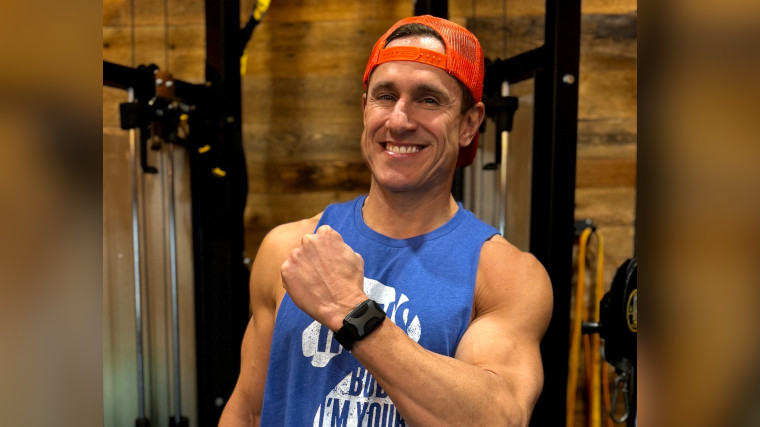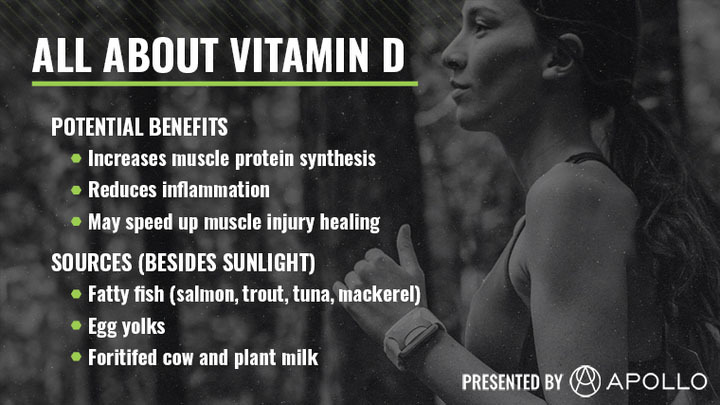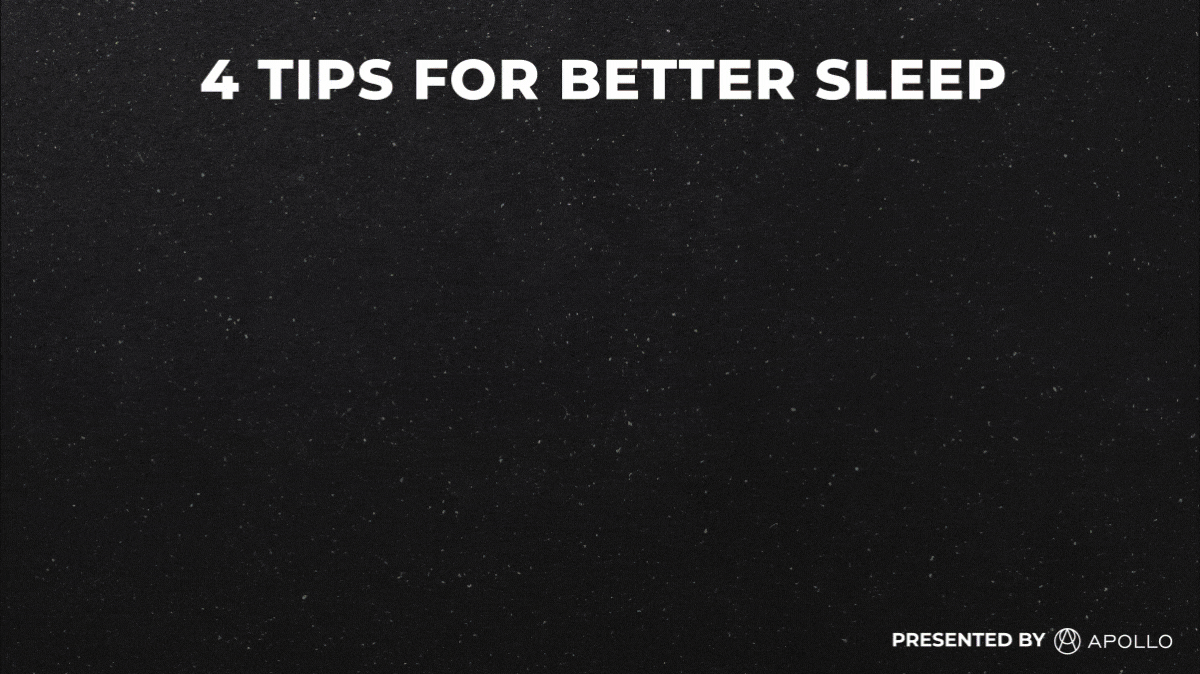While much of your fitness progress can be measured by what you do in the gym, your post-workout recovery strategy does more heavy lifting than you might realize. These strategies have grown in importance in recent years as we learn new ways to optimize our recovery time outside the gym to feel better inside of it.
Everything from the timing of meals to the temperatures of post-workout baths is now factored into many people’s routines. Still, with so many different opinions out there, it can be tough to find the tips and tricks that work. So, to help cut through the noise, BarBend teamed up with celebrity trainer Don Saladino to get some answers.
Editor’s note: The content on BarBend is meant to be informative in nature, but it should not be taken as medical advice. When starting a new training regimen and/or diet, it is always a good idea to consult with a trusted medical professional. We are not a medical resource. The opinions and articles on this site are not intended for use as diagnosis, prevention, and/or treatment of health problems. They are not substitutes for consulting a qualified medical professional.
Introducing Our Expert
Don Saladino is a personal trainer and gym owner who has been actively training clients for decades, and the list of Hollywood stars he has prepared for film roles includes Ryan Reynolds and Blake Lively. Put it this way: if you’re a fan of superhero movies, chances are you’ve seen a body built by Saladino.

As a trainer, Saladino has heard about nearly every post-workout tactic imaginable. Here are the ones he says are the most important.
Prioritize Protein and Carbohydrates After a Workout
Post-workout recovery often begins with repair and replacement. Specifically, your body needs to repair its strained muscle tissue and replenish the energy sources that have been depleted. Because of this essential need, Saladino urges you to seek out protein and carbohydrates after workouts.
“After a workout, you’re going to be somewhat glycogen depleted, and your body is going to need some protein as a muscle-building block,” Saladino says. “Your body is also going to need some carbohydrates to restore some of that lost glycogen. I would be looking for some protein and some carbohydrates that are fast-burning. If you’re consuming fast-burning carbohydrates, that’s going to quickly replenish that loss of glycogen.”
A good rule of thumb is to get 2.2 grams of protein per kilogram of lean muscle mass daily. (1) (2) When it comes to a post-gym meal, you’ll want to aim for a 2:1 ratio of carbs to protein. Think of foods like low-fat Greek yogurt, fish, or grilled chicken for protein and whole wheat bread or brown rice for carbs.
Diagnose Problems Before Dabbling In Supplements
While supplements can fill in critical nutrition gaps, boost muscle growth, and reduce recovery times, not everyone has precisely the same post-workout supplementation needs. Saladino suggests consulting with a doctor and getting some blood work done to give you targeted insight.
“I get my bloodwork done every few months, and I saw that my vitamin D was acceptable, but probably on a little bit of the lower side,” he says. “That was an opportunity for me to consume some more vitamin D for a period of time and go back and test and see where my numbers are at. I think that’s the right way to do it: Get your blood work done, see what the normal standards are, and get a functional medical doctor to let you know what numbers need to be brought up to an optimal level.”

Monitor Your Micronutrients
Macronutrients — protein, fat, and carbs — are such a core element of nutrition and performance that some people routinely neglect to monitor their micronutrient intake. This is problematic to Saladino because these vitamins and minerals are vital to physical health and play a hand in everything from regulating blood flow and cellular regeneration to hormone optimization.
“Vitamins, minerals, and fiber are what make our food truly powerful,” Saladino says. “When you’re turning around and just having white rice, you’re not really getting any nutrition. Bodybuilders often consume what they need to hit their macros, but they’re not focusing on micros.”
These often-overlooked micronutrients are important for your overall health. Something like magnesium, for example, can potentially help with energy production and improve your heart health. And there are plenty more micronutrients that you can read about here.
“If your vitamin D levels are low, or your iron is low, or any other major vitamins and minerals are low, you stop being as hormonally efficient as you should be,” Saladino continues. “That can really disrupt your recovery, even if you’re training for body composition change.”
Don’t Shrug Off Salt
Salt is ubiquitous in our food, but its importance still often flies under the radar. However, salt is required for cellular function, maintaining blood volume, and the signaling of nerves throughout your body. While it’s unlikely that you’ll consume so little salt that you’ll disrupt these operations, Saladino says that avoiding it altogether may disrupt your recovery.
“When you are just sitting there pounding water all day and finding yourself using the bathroom every five, 10 minutes, I think that’s a problem,” Saladino says. “Maybe you’re rinsing out a lot of the minerals. That can be a sign that you don’t have enough sodium in your system. I find that when I’m hydrated, I don’t have to use the bathroom every 30 minutes. But, when I don’t have enough salt in my system, I’m running to the bathroom every few minutes.”
And salt isn’t just useful in recovery mode — you can also consume it as part of a pre-workout ritual. That’s because research shows that salt may help balance electrolyte levels, increase blood flow for enhanced endurance, and improve muscle contractions.
Be Wary of Just Following Trends
Some athletes can get bogged down in the minutiae of training, nutrition, and recovery, but they ignore some of the most important components of health instead of chasing the latest trends. This isn’t to say that innovations like massage guns and cold plunges aren’t helpful, but Saladino advises you to make sure you’re implementing the most important basics first.
“If a client comes to me talking about how they cold plunge three or four days a week for three minutes a day, I’ll say that’s fantastic,” Saladino says. “But then I’ll ask them how they sleep, and they might say they only sleep three hours a night. People can get so caught up on cold plunging and infrared treatments when they’d be better off focusing on something that’s far more important to recovery, like sleep.”
Prioritize Your Sleep
Sleep is the most natural and essential form of post-workout recovery. Your body takes that time to slow several processes down to a crawl and go into its optimal recuperative mode. While plenty of special foods, supplements, and routines are advertised to accelerate your recovery, Saladino believes it can all be for naught if you fail to get adequate sleep.
“I think getting seven to nine hours of sleep every night is very important,” Saladino says. “I’ve had clients of mine in the past who train like crazy, and they eat really well, and their sleep just gets worse and worse and worse, and they just put on more and more body fat. So from what I’ve seen, there’s a huge correlation between not reaching your fitness goals and not getting enough sleep.”

References:
- Stokes T, Hector AJ, Morton RW, McGlory C, Phillips SM. Recent Perspectives Regarding the Role of Dietary Protein for the Promotion of Muscle Hypertrophy with Resistance Exercise Training. Nutrients. 2018 Feb 7;10(2):180.
- Chad M. Kerksick, Shawn Arent, Brad J. Schoenfeld, Jeffrey R. Stout, Bill Campbell, Colin D. Wilborn, Lem Taylor, Doug Kalman, Abbie E. Smith-Ryan, Richard B. Kreider, Darryn Willoughby, Paul J. Arciero, Trisha A. VanDusseldorp, Michael J. Ormsbee, Robert Wildman, Mike Greenwood, Tim N. Ziegenfuss, Alan A. Aragon & Jose Antonio (2017) International society of sports nutrition position stand: nutrient timing, Journal of the International Society of Sports Nutrition, 14:1.